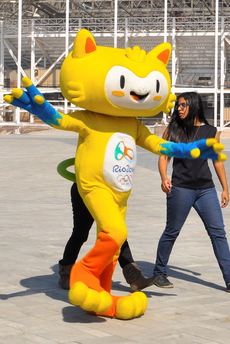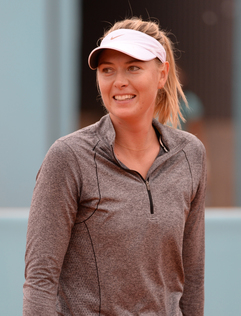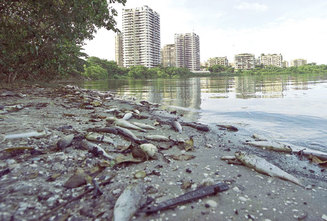 The Russian track and field team has been banned from the Rio Olympics. The elaborate state sponsored doping scheme began to fall apart when suspicions arose regarding some of the athletes at the Sochi Olympics. Two heads of the testing organization in succession had sudden and unexplained deaths. More recently a team from WADA sent to Russia to sort out the mess, claims that they were threatened by the Russian Federal Security Service and that many athletes have evaded drug testing with the collusion of their keepers. Dr. Grigory Rodchenkov, director of the anti-doping laboratory testing the Sochi athletes gave an explanation of how the testing procedure for the Sochi Games was corrupted. An elaborate scheme involving secret holes cut through walls and lists sent after midnight of whose samples needed to be ‘cleansed’ was revealed. Dr. Rodchenkov now lives in Los Angeles. While the IAAF ban disqualified all Russian track and field athletes, there is some hope that the International Olympic Committee(IOC) will review the appeals and records of athletes that can prove that they weren’t cheating. To bring a more human face to the damage that sports cheaters cause, this week Jared Tallent, Australia, was presented with a gold medal from the London 2012 Games. The athlete who held the gold medal was disqualified because of suspicion of doping. Russia is not the only country that produces doped athletes. Ethiopia and Kenya are currently under investigation for doping. The money and prestige that individuals gain if they can earn a gold medal from the Olympics is a strong motive to try whatever works. Athletes from at least a dozen countries have been labelled cheaters. Read More: New York Times The Washington Post
0 Comments
 Games mascot Games mascot Cheaters, bribes, disease and crime seem to be elbowing the athletes for Olympics 2016 out of the spotlight. Unconfirmed reports have come in that two N. Korean runners took a short cut in the marathon to decide who would qualify for the Olympics. Cheaters are still being outed from the Russian winter games in Sochi. The murky world of the Russian drug testing labs has seen two directors die suddenly and a third director apologizing for the lapse. Kenya is another country with sketchy testing for performance enhancing drugs. The World Anti Doping Agency(WADA) has declared the country non-compliant. Yet the Kenyan athletes are still allowed to compete at the Rio Olympics. They will be on a watch list. But not all is cheating with performance enhancing drugs. Both Australia and the IOC are set to distribute a half million condoms for the athletes who stay in the village. The Aussies will supply Zika-proof condoms which come lubricated with an anti-viral substance. The IOC is set to distribute free of charge, 100 000 female and 350 000 male condoms. It makes this writer wonder if the athletes will be too tired to compete during the medal rounds. Whether Brazil will be ready to host the first ever southern hemisphere Olympics remain a question. Adding to the country’s complications is the political turmoil. The president Dilma Rousseff, has been kicked out of the presidential palace in Brazilia while the vice-president has taken over. She has been ousted while an impeachment action is taking place. The country seems divided over this and massive street demonstrations grab the headlines. The unexpected drop in oil products has left the country in a bad economic way. Added to that is an investigation as to where about two billion dollars in oil revenues went. This has meant that money originally earmarked for Olympic venues and added security has had to be cut by $600 million. A spectacular bike/pedestrian pathway recently collapsed into the ocean killing a couple of unfortunate walkers. Budget cuts have seen the contracts cut on the tennis and equestrian venues cancelled. The sewage problems remain, the subway will probably be incomplete by August 5, opening day. Once this year’s games are done and the medals put away, the organizers in Japan can start their hoopla. Front and centre this week was the suspicious $2.6 million paid during the Japanese bid for the games. The Japanese have stated that they will cooperate completely to solve the mystery payment. Sources: CBC News The Guardian Global News  Did she or didn't she? Did she or didn't she? It seems that some top athletes will cheat to maintain their careers and to stay in the lime light. Recently a new performance enhancing drug has been added to the long list of banned substances. It is a Latvian prescription only drug used to treat heart problems. The drug, meldonium, has proved useful for heat patients to help increase ability to exercise. It is usually prescribed for a course of six weeks. The World Anti-Doping Agency(WADA) warned athletes of the ban effective January 1 of this year. Elite athletes, whether professional or amateur, are responsible for ensuring that they are ‘clean’ when they compete. The drug burst into the public consciousness when top seeded tennis player Maria Sharipova tested positive for the banned substance in early March. Many more athletes have also tested for the banned substance, many from Russia and eastern European countries. The count is currently up to 100 positive tests. Russia is currently under scrutiny for its doping of athletes. It is alleged that the doping is state sponsored. WADA is debating whether to ban all the Russian athletes from the upcoming 2016 Olympic Games in Brazil. Strange things have happened since the scandal broke in Russia. The head of the lab in charge of testing athletes for banned substances met an early death. His successor quickly followed when he suffered what was an apparent heart attack after an afternoon of cross country skiing. The lab has had its certification suspended due to irregularities. The Russian sports minister assured the public in an interview that he was confident than no Russians were taking the banned substance. Shortly afterwards it was announced that four more athletes had tested positive. August is coming up quickly for these athletes. Some may have openly consumed the drug before the ban and are slow to eliminate it from their bodies, but positive tests may keep them out of the Olympics. Sources: CBC News Wikipedia Fortune
Brazil will be the first southern hemisphere nation to host an Olympic Games. They have been particularly criticized for their failure to control sewage and general garbage that finds its way untreated into waterways and eventually the ocean. High counts of dangerous viruses and bacteria have been found. Much of Rio has no sanitary sewer system, including many modern looking apartment buildings.
Brazilian officials are also trying to reassure those participating in equestrian events that there is no danger of contagion from the bacterium that causes glanders, a communicable and fatal disease. The venue where the equestrian events are to be held had recently had a positive case of the disease. The horses that would compete in the Olympics, aside from their value as a sentient and beautiful athlete, carry hefty price tags. Highly skilled equestrian horses may have multi-million dollar price tags. Glanders had been eliminated in the US, Canada and Europe for decades. It is endemic in Brazil among that country’s horses, donkeys and mules. Sources: Reuters National Post The Richest
|
Barbara McPherson
Blogger, gardener, farmer. Working toward food security and a 30 foot
diet. Addicted to reading. Love this planet, especially my little corner
on Vancouver Island, Canada Archives
October 2016
Categories
All
|



